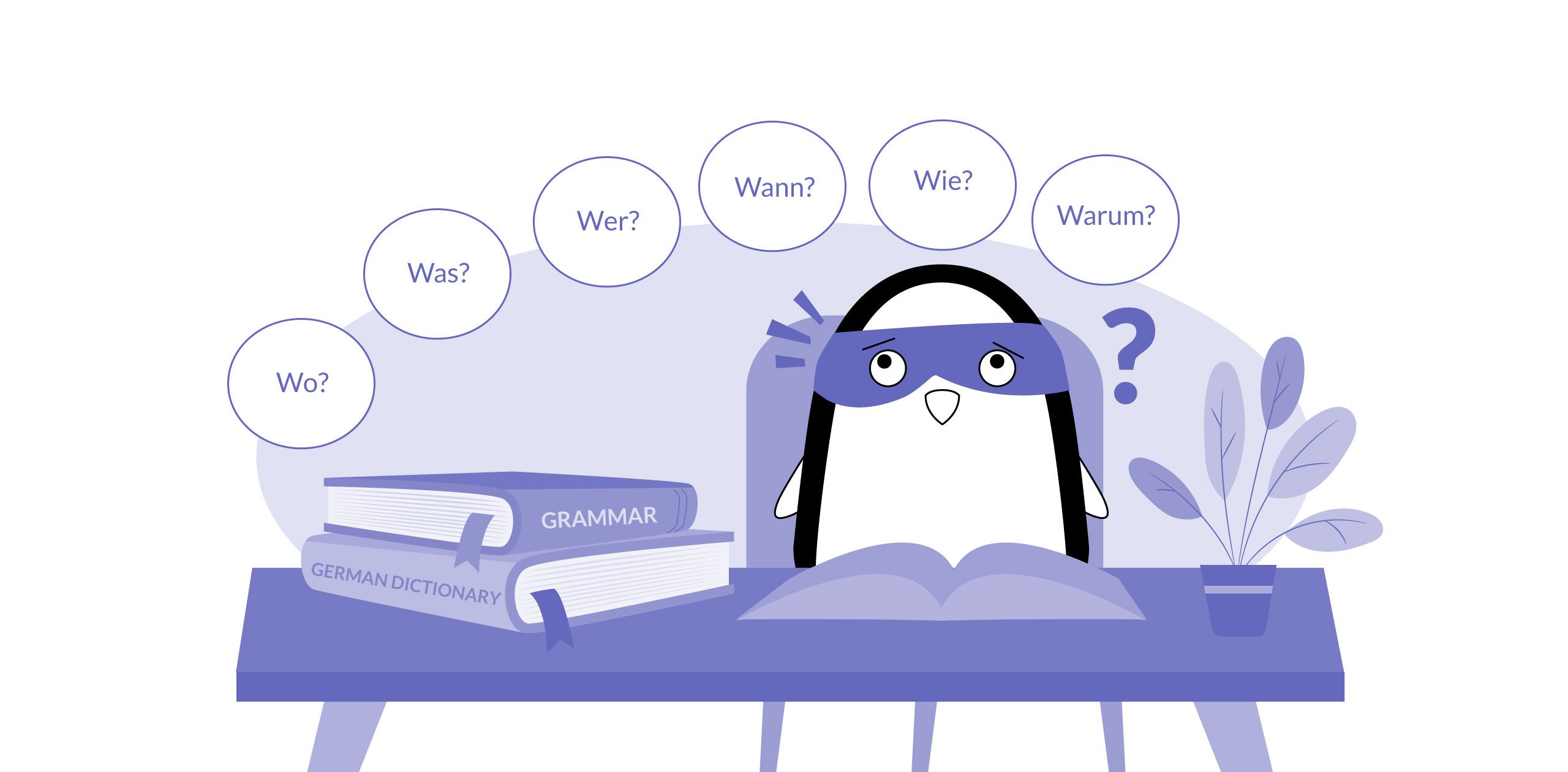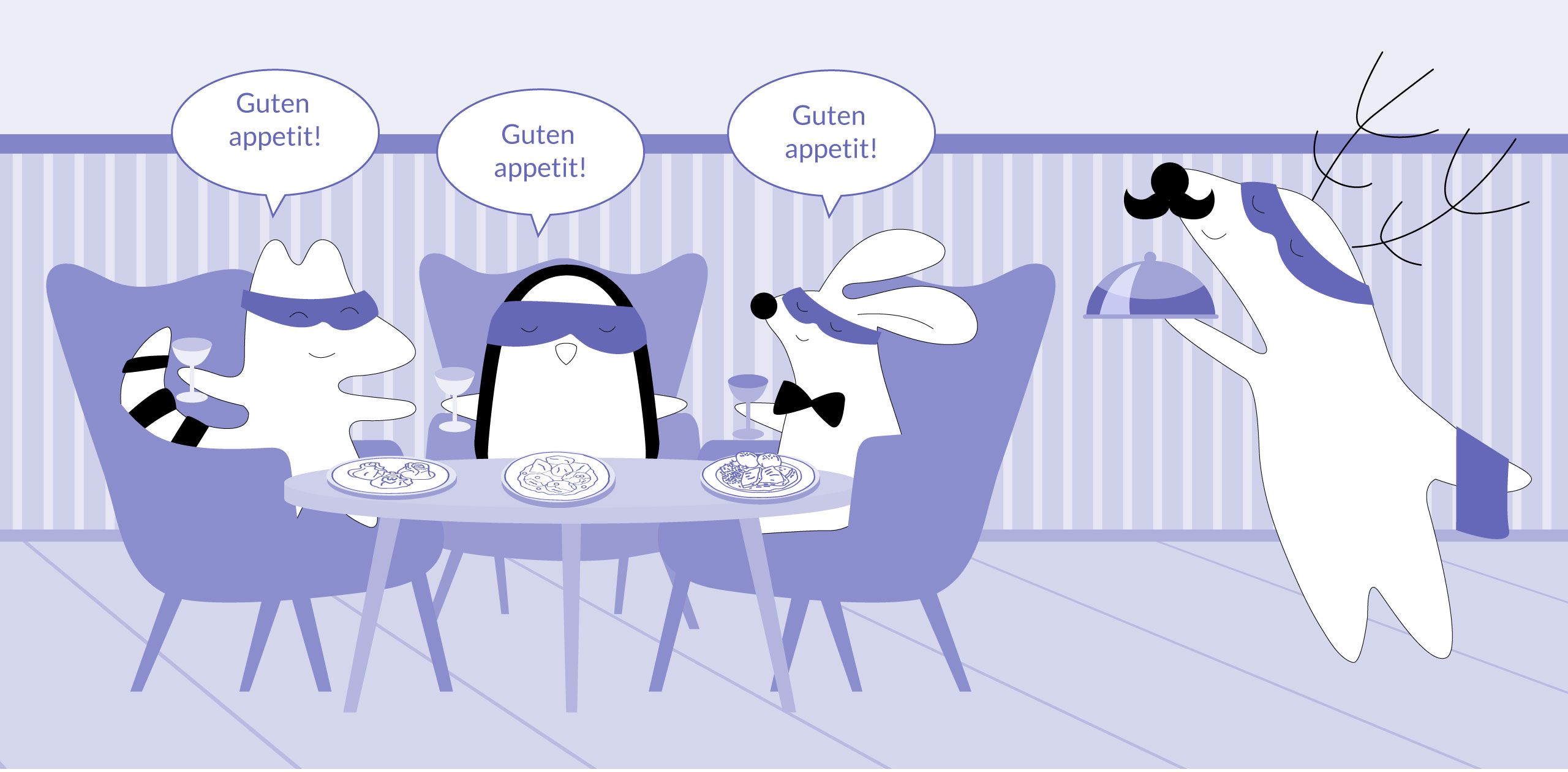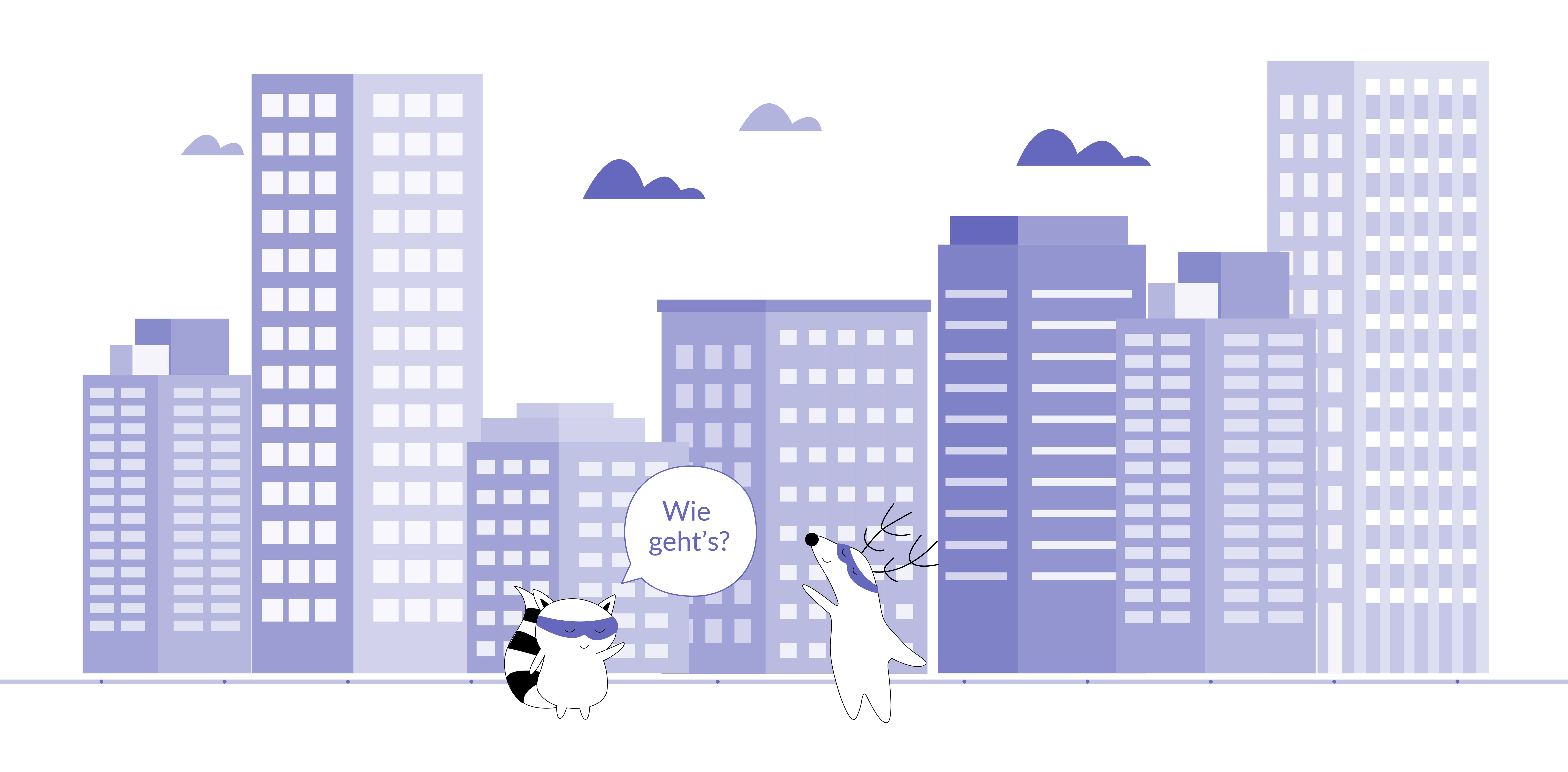
For anyone who wants to learn German, it’s important to be able to ask and answer “How are you?” in a polite and appropriate way. Learning the various ways of asking this question can help make conversations more comfortable for both parties involved. Whether you’re just starting out with learning German or have been studying it for some time, mastering how to say “how are you?” is essential.
In Germany, there are several different phrases used when asking someone how they are doing. Depending on the context and situation, one phrase may be more appropriate than another. Knowing which phrase is right for each circumstance can help ensure that your conversations remain respectful and friendly at all times.
Furthermore, understanding the nuances between these phrases will also give you insight into German culture – knowing exactly what words they use in certain situations is a nice way to show respect.
Below, we'll discuss the various ways of saying “how are you?” in German, explain when each phrase should be used, as well as provide examples and some helpful tips. Want to feel comfortable talking to a native German speaker? Then read on.
Learn German with Langster
The Most Popular Way: Wie geht es dir?
The phrase “Wie geht es dir?” (literally, “How does it go for you?”) is the most commonly used way to say "how are you?" in German. This is your go-to phrase when talking to people of a similar age group or with whom you have a friendly relationship, like friends, classmates, colleagues, or family.
The origins of the phrase are linked to the notion of life passing by, so you are basically asking: “How is life going for you? How is the time passing by for you?” You can also find similar phrases in some other languages, like French and Italian.
Of course, you can also put it in the plural to use when talking to a group of people:
German
English
Wie geht es dir?
How are you? (singular)
Wie geht es euch?
How are you? (plural)
Note the grammar here: in questions of this type, whether you’re using the pronoun du, Sie, or ihr, always put them in the dative case – like dir or euch.
Make It Shorter: Wie geht’s?
Just like shortening “How are you doing?” to “How are you?” in English, you can do the same in German. If Wie geht es dir? looks a bit challenging for you, you can always say Wie geht’s?
Here, we simply shorten es to ‘s and omit the pronoun – who needs it, anyway?
When to use Wie geht es dir? and Wie geht’s?
These phrases are very similar, but you will use them in different contexts. The longer version, Wie geht es dir?, will work well for people you are friendly with but not very close to – for example, distant relatives or coworkers.

On the other hand, Wie geht’s? is reserved for your close friends and family, like siblings.
And then, if you are not sure which one to use – for example, you’re talking to your manager, but you’re getting along pretty well, you can play with the variations of these phrases:
German
English
Wie geht’s dir?
How are you? (singular)
Wie geht's euch?
How are you? (plural)
Wie geht's Ihnen?
How are you? (a bit more formal)
Stay Formal and Polite: Wie geht es Ihnen?
The phrase “Wie geht es Ihnen?” is a standard formal version of “how are you?” in German.
Since we are using the royal "You" here, Ihnen, it implies respect for the person being asked. You can use it in most formal situations, such as during job interviews, business meetings, or when addressing older people.
This is also the phrase you will use when talking to people you don’t know well: for example, when visiting a bank, a store, going to school, or simply meeting someone you don’t know well.
German
English
Wie geht es Ihnen?
How are you doing? How is it going for you?
Want to Be Even More Casual? Use Wie läuft’s?
If you’re feeling a bit playful and informal, you can also use the phrase “Wie läuft’s?” (literally, “How is it running?”) as an alternative way to say “how are you?” in German.

Here, we swap the verb gehen with laufen, which also means “to run” but is a bit more casual.
An English alternative to this would be “How’s it going?” or “How you doing?”
German
English
Wie läuft’s?
How’s it going? How you doing?
If You Expect a Short Answer: Wie schaut’s aus?
If you don’t have much time and know that the other person will go on and on about what happened in their life, imply that you don’t want a long answer with “Wie schaut’s aus?”
This German expression literally means “How is it looking?”, and people usually answer it with a simple “ok” and maybe a quick follow-up.
German
English
Wie schaut’s aus?
How’s it looking?
Other Ways to Say “How are You?” in German
Of course, these are not all the ways to ask “How are you?” in German. Here are some other variations you might find useful:
German
English
Was ist los mit dir?
What's going on with you? (often used when something seems “off”)
Was macht die Arbeit?
How is work?
Was geht ab?
What’s up?
Alles klar?
All good?
Alles gut bei dir?
Everything good with you?
Wie fühlst du dich heute?
How do you feel today?
Wie ist die Lage?
How are you doing? (German slang, mainly used among younger people)
Wie geht's, wie steht's?
How’s it going, how’s it standing?
Na?
So? (very informal and very versatile, you can use it on its own or together with any other expressions.)
How to Respond to How Are You?
In the German language, unlike in English, asking “How are you?” is not just a polite way of saying hello. It always implies a response. The response, however, will depend on your relationship with the person you’re talking to.
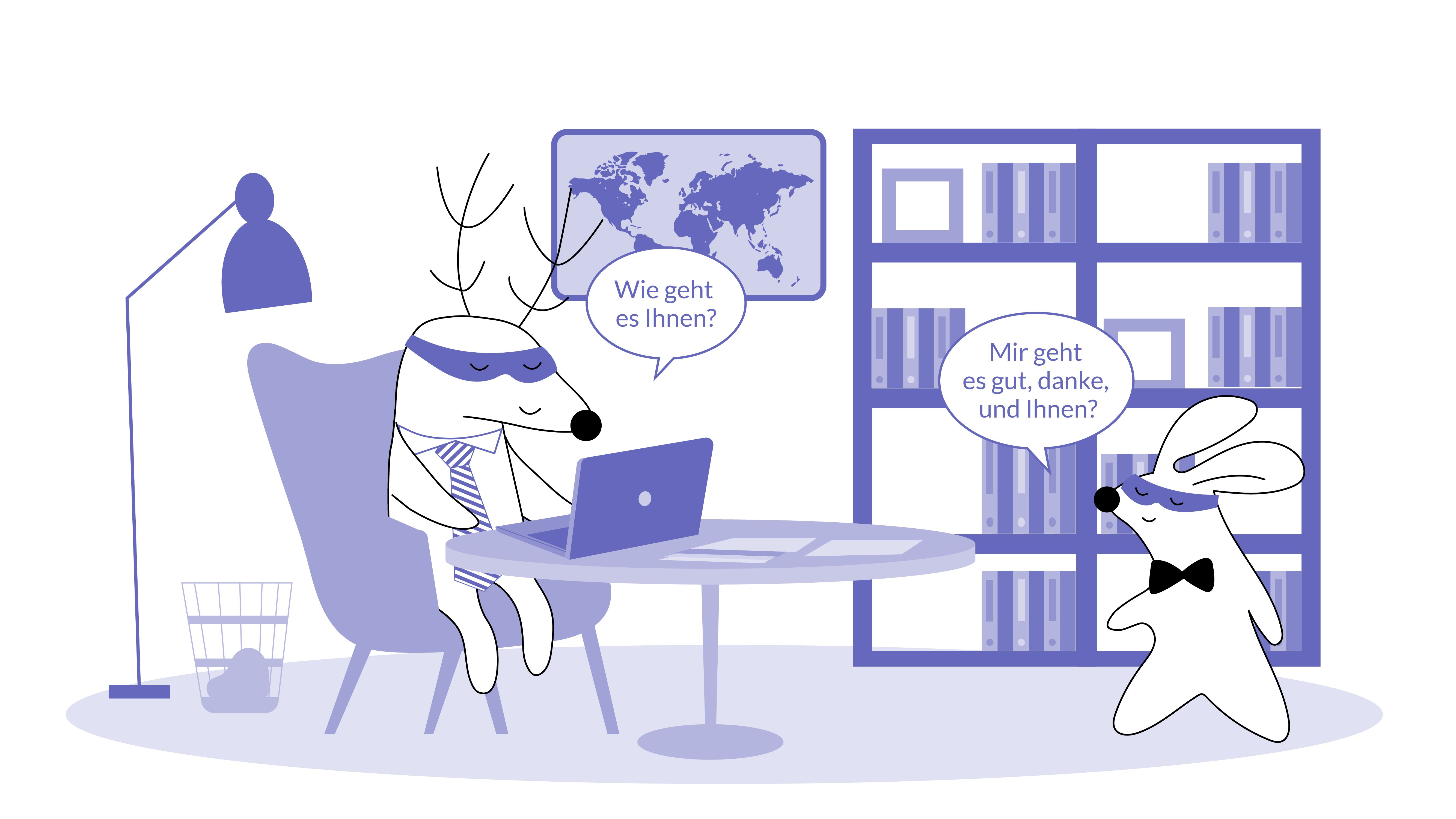
For example, if you are having a conversation with someone you don’t know well or are not close to, like your boss, it can be enough to say something short. Here are some appropriate answers:
German
English
Mir geht’s gut, und dir?
I’m good, and you?
Mir geht es gut, danke, und Ihnen?
I'm fine, thank you, and you?
Danke, gut.
Thanks, I’m good.
Gut, danke.
Fine, thank you.
Sehr gut.
Very good.
Ganz gut.
Really good.
Es geht.
So-so.
Nicht so gut.
Not so good.
On the other hand, if you are talking to your friend or anyone else you have a deeper relationship with, you can either be more casual or go into more detail.
German
English
Ich kann mich nicht beklagen.
Can’t complain.
Ich fühle mich großartig, danke!
I’m feeling great, thanks!
Mir ging es nie besser.
I’ve never been better.
Heute ist ein schöner Tag!
It’s a beautiful day today!
Ich bin ein bisschen müde, aber gut, danke!
I’m a little tired, but good thank you!
Ich komm’ schon klar.
I’ll be fine.
Naja…
Meh…
Es könnte schlimmer sein.
It could be worse.
Mir ging’s schon besser.
I’ve been better.
Mir geht es schlecht.
I'm not well.
Ich bin heute mit dem falschen Fuß aufgestanden.
I got up on the wrong side of bed today.
Remember that you can always simply use an adverb to respond:
German
English
Bestens
Splendid
Super
Great
Fantastisch
Fantastic
And, just like in any other language, you can always accompany your response with “And you?” Here are some variations:
German
English
Und Ihnen?
And You? (formal)
Und dir?
And you? (singular, informal)
Und euch?
And you? (plural, informal)
Bottom Line
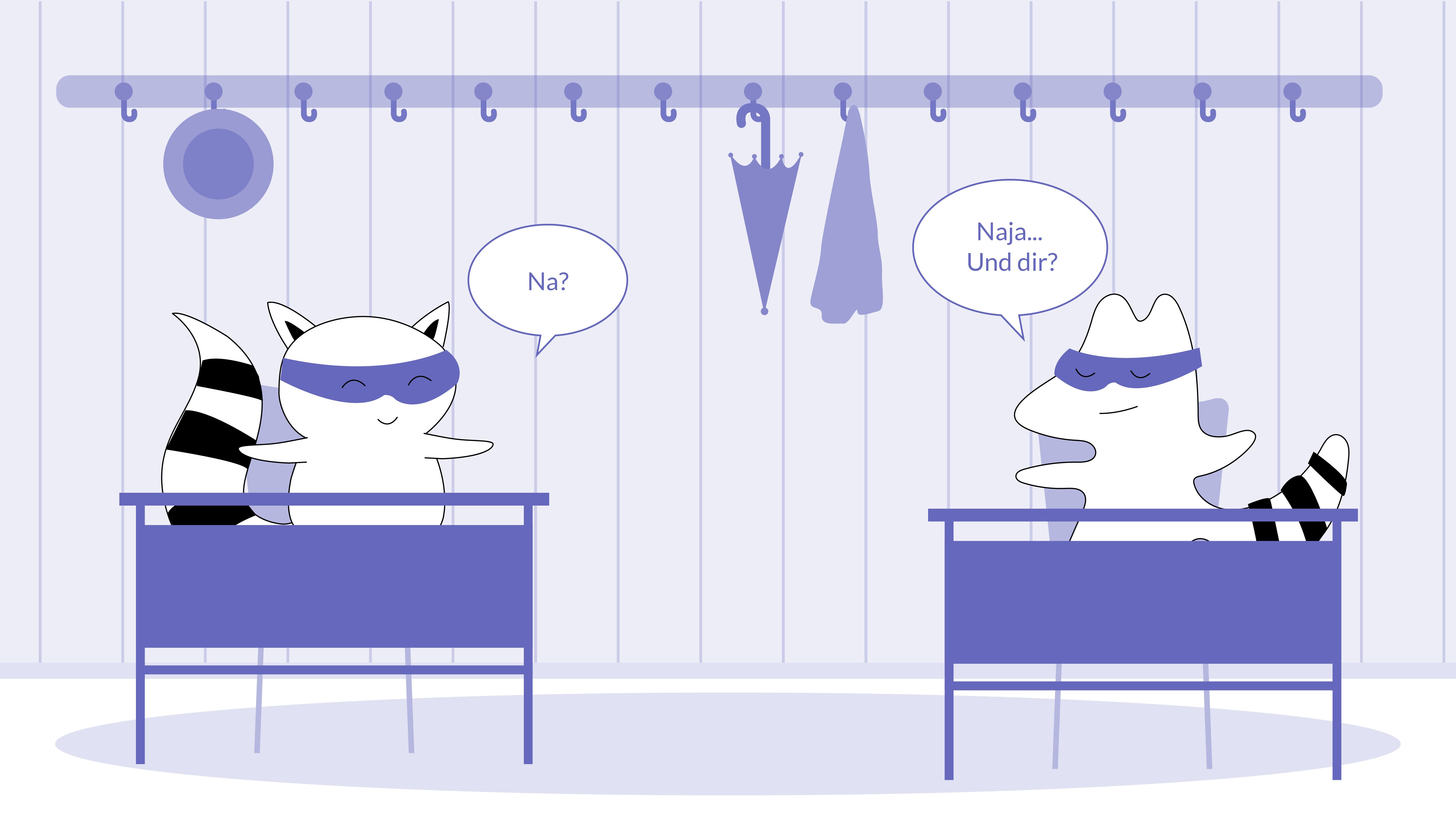
No matter which expression you use, remember to be polite and express genuine interest. A simple “wie geht’s?” or “alles klar?” can easily start a conversation, while a more detailed response will depend on the context and your relationship with the person you are speaking to.
Above all else, make sure to listen carefully to what the other person is saying and respond accordingly.








